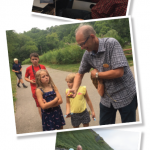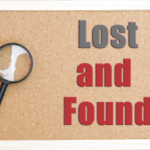There is no substitute for seeing lots of patients & keeping up on reading in the field.
As someone interested in medical history, I have also looked to physicians like William Osler and Adolf Kussmaul as figures who were outstanding clinicians. Lessons from them, like lessons from my own role models in training and thereafter, are the importance of performing self-critique, having a willingness to reevaluate a difficult problem time and again, being able to openly admit mistakes and act upon them in a positive way that ultimately enhances patient care, and working to achieve excellence in teaching.
TR: For a fellow in training or junior rheumatologist, what are some habits that can be incorporated into daily practice to build on their skills as a clinician?
ELM: The question is a good one: I don’t know of any magical way to build skills other than to practice them. There is no substitute for seeing patients, and it is important to not shy away from seeing patients in large numbers over time. Most of what I have learned in medicine, and a lot of what I have learned in life even outside medicine, has been the result of my interactions with patients. I’ve already mentioned the habit of reading daily.
All of this is hard work, and it simply must be done to reap the rewards. Medicine isn’t an 8 to 5 job. It is a privilege and one that must be earned and deserves our hard work.
Another important feature of success is to develop a sound mentorship relationship—often more than one—and to work assiduously to develop a peer network for professional and personal support.
TR: What lessons have you learned from patients that have contributed to your own growth as a clinician?
ELM: One of the most important things that I have learned is personal awareness and resilience. Many of our patients suffer from chronic, complex diseases. I have had powerful experiences in both success and also in failures of care that have made me more empathetic and shown me how important it is to listen, guide, and also honor the personal agency of not only patients, but also learners at different levels, as well as of colleagues and friends.
I’ll never forget a young woman I met early in my career. She had a rare autoinflammatory disorder with recurrent macrophage activation syndrome. She had two small children, a husband deployed with the Army and wonderful patience. We figured out the diagnosis, and she initially, to our gratification, responded to treatment, but over a year-and-a-half she suffered multiple relapses and died. It was incredibly heart-breaking. Today, we might have been able to save her with some of our newer therapies. I feel that I got to know a wonderful person and family during her care and at her funeral. It was a real lesson about the importance of understanding disease and patients and humility.


